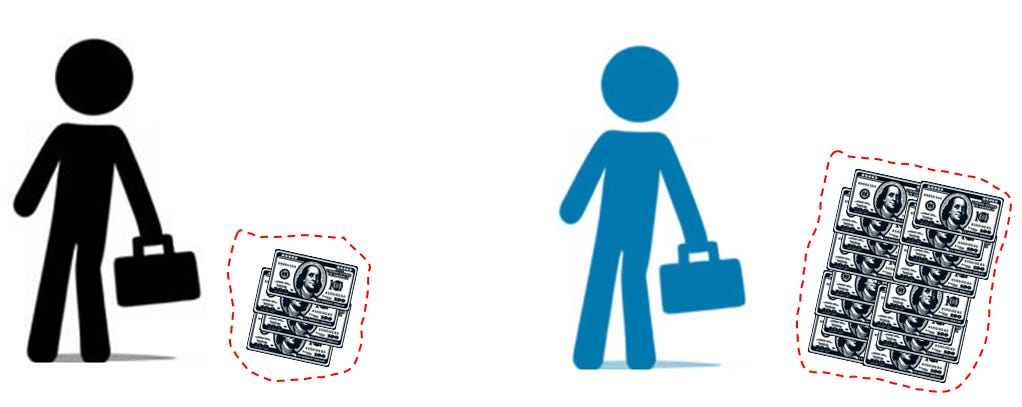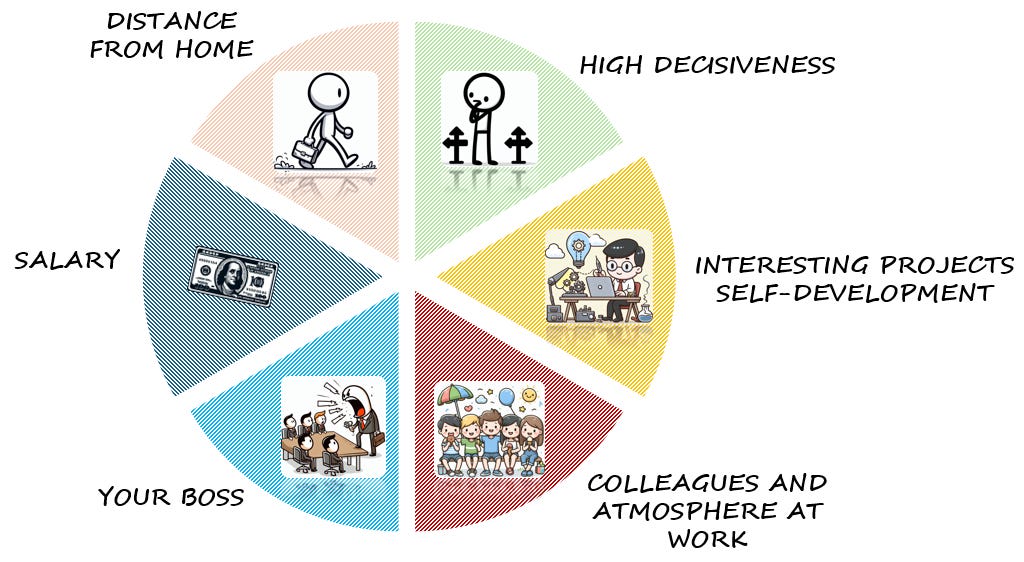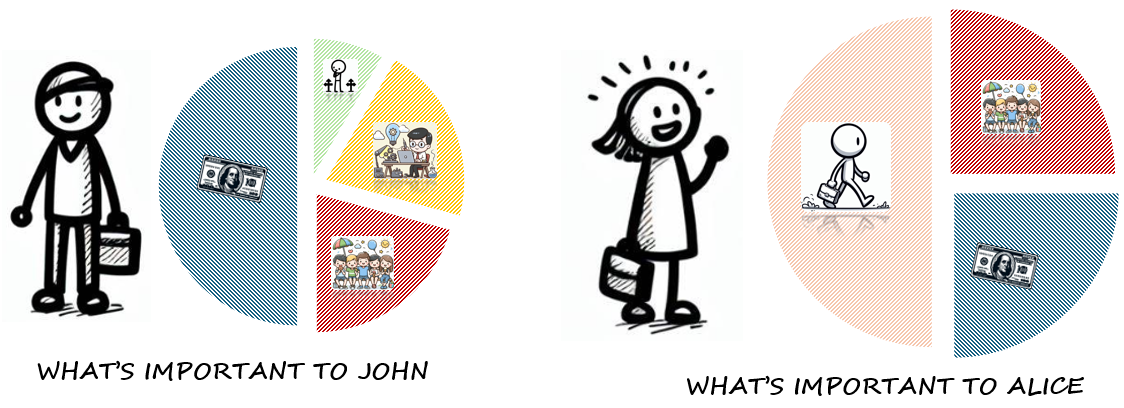You take the whole!
Focus on the forest instead of the trees
"Man, I hate this job. They're paying me pennies and expect me to juggle a million different things at once. This is the worst place to work ever."
Such full-of-anger comments can sometimes be heard in employee canteens or during meetings with friends where, after a few beers, we start talking about our situation at work.
For many of us, this is an important part of life - we spend eight hours a day there (and often even more, working overtime). Money is also important - there's no denying that. However, the problem with this kind of approach is that when analyzing a given thing, we focus on one element of the whole.
So, when talking about work, we often claim that our reality looks like this:
whereas in fact, it is closer to something like that:
Moreover, this reality is even more complicated as individual elements may carry more weight for different people (or perhaps not exist at all).
So, what matters to John is probably different from what matters to Alice.
"You take the whole" is a principle we often forget when analyzing a given thing. By focusing on a single aspect, often the most painful and irritating one at a given moment, we tend to ignore other elements that may be equally important.
A broader view of the particular case, taking into account all its areas, always gives a better chance of making a more informed decision. Things very rarely exist in a vacuum. Usually, they are part of complex systems and, most importantly, they influence each other.
THINGS ARE INTERTWINED
Project managers are likely familiar with something called the Project Management Triangle, or the Iron Triangle. It’s a simple idea that shows how three main parts of a project – Cost, Time, and Quality/Scope – are linked together.
This principle highlights that changing one aspect of a project will inevitably affect the other two.





